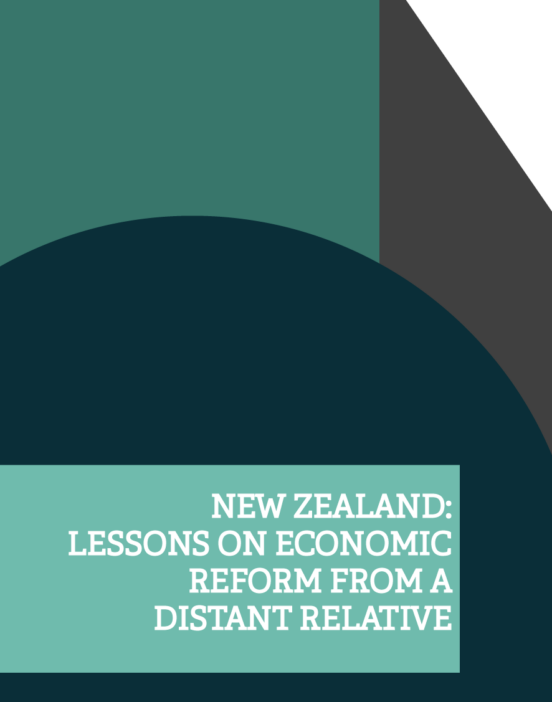New Zealand

New Zealand is geographically the most ‘distant’ country in the world. Its nearest neighbour lies 2,000km away. While having a land mass similar in size to the United Kingdom or Japan, it has only a fraction of their population (approximately 5 million). In these respects, it may be thought to be suis generis, with few lessons for geographically closely connected, large countries. In many respects, however, New Zealand’s experience can shed light on the processes of economic adjustment to major shocks. It is a liberal democratic country with a Westminster-style government that has had to adjust to major international and domestic shocks, just as the United Kingdom faces today.
From being one of the richest countries in the early twentieth century (along with the United Kingdom), New Zealand’s fortunes slipped inexorably relative to other developed countries after the First World War and until the 1980s. It lost access to its main trading partner when the United Kingdom joined the European Communities in the early 1970s and New Zealand was then hit by substantial commodity price shocks in the 1960s and the energy shocks of the 1970s. This major disruption exacerbated the trend of declining relative incomes and led to a far-reaching programme of market-oriented policy reforms between 1984 and 1991. Starting in the early 1990s, incomes in New Zealand began to grow again in relative (as well as absolute) terms, accompanied, however, by greater inequality and massive imbalances in the housing market.
The paper briefly discusses this historical context before giving an overview of the country’s major economic reforms – including their effects on economic and social developments. New Zealand’s experience provides a useful perspective as to how a range of reforms could affect both economic and social performance in the United Kingdom and elsewhere. More broadly, it provides lessons in some of the benefits, and risks, of seeking to shift the economic model of a country in the face of external shocks and ongoing relative economic decline.
Download a PDF of the full essay
Read more from the Navigating Economic Change series
The Navigating Economic Change essays are written by a range of leading economists and national experts and reflect the views of the authors rather than those of the Resolution Foundation, the LSE or The Economy 2030 Inquiry.
They have been commissioned and edited by Gavin Kelly (Chair of the Resolution Foundation and member of the Economy 2030 steering group) and Richard Davies (Professor at University of Bristol and fellow at the LSE’s Centre for Economic Performance).